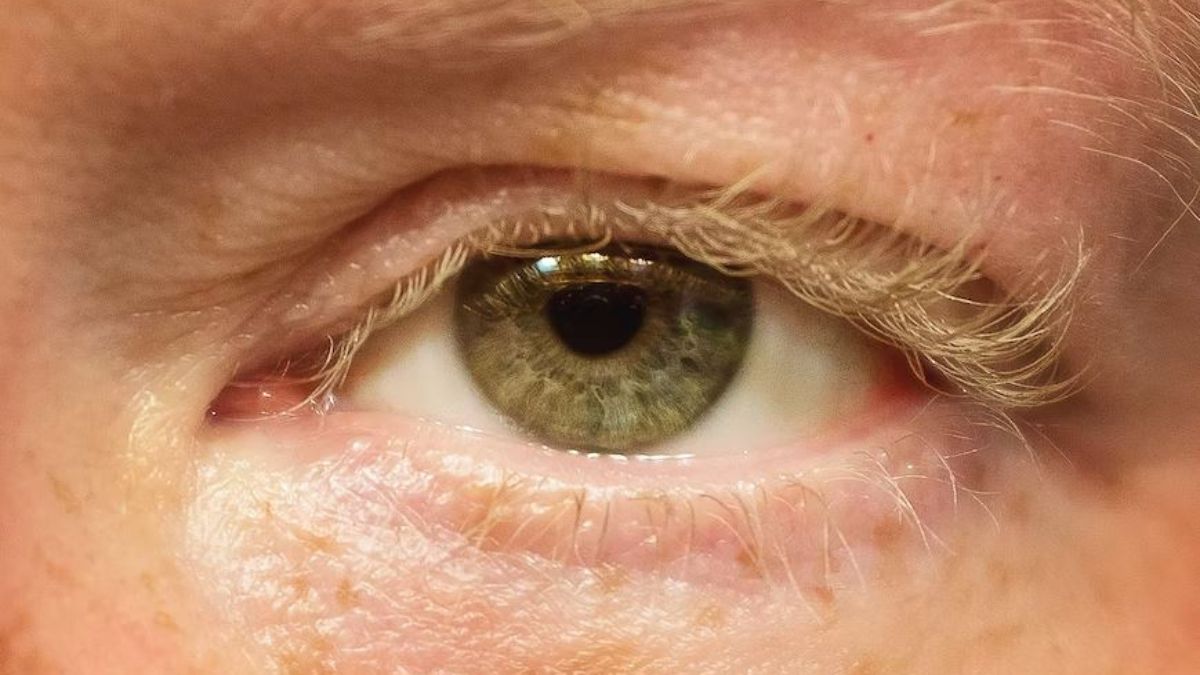HEALTH
Suboxone Withdrawal: What to Expect and How to Cope

Suboxone is a popular drug for treating opioid addiction. It is a mixture of buprenorphine and naloxone, which assists in managing withdrawal symptoms caused by more potent opioids such as heroin, oxycodone, or morphine. Suboxone is an effective therapy for opioid dependence, but paradoxically, it can be associated with symptoms of opioid withdrawal after it has been stopped following lengthy treatment. Anyone serious about tapering off Suboxone needs to know about Suboxone withdrawal – what to expect, how long it lasts, and how to manage it.
What is Suboxone and How Does It Work?
Suboxone is a partial opioid agonist. Buprenorphine, a primary ingredient, latches onto opioid receptors in the brain, dampening cravings and withdrawal symptoms without causing the intense high of opioid painkillers.
Naloxone is added to discourage abuse, because it would cause sudden withdrawal if Suboxone is injected instead of taken as directed. Suboxone, because it helps stabilize those going through the recovery process from opioid misuse, Suboxone is a key part of Medication-Assisted Treatment programs. But as users take Suboxone longer, they can also become physically dependent on Suboxone, and discontinuing too suddenly can bring uncomfortable withdrawal.
Understanding Suboxone Withdrawal
Suboxone withdrawal happens when a person who is physically dependent on the drug stops using it. Withdrawal symptoms can range from single episodes of light anxiety to recurring established symptoms for users, as function is frequently dependent on various factors including dose, time treated, and method of cessation of use to the individual’s health as well as their natural metabolism.
Suboxone withdrawal is usually less severe than withdrawal from heroin and other opioids, but it typically lasts longer (for about a month), and it can be just as physically taxing as withdrawal from more potent drugs like fentanyl. Given buprenorphine’s half-life and time to withdrawal, the period before withdrawal onset can be prolonged, beginning days after the final dose and sometimes being longer in duration than that experienced for short-acting opioids.
Suboxone Withdrawal Symptoms
Suboxone withdrawal severity can range from relatively mild to dangerously intense depending on the person and circumstances. They can develop slowly and be mild, or become severe. Some people liken them to an extended flu. Physical symptoms may consist of muscle pain, joint pain, sweating, headaches, shivering, nausea, vomiting, and diarrhea.RowCount count of cases where the symptom was present. These effects are sometimes accompanied by emotional and mental consequences such as anxiety, tension, mood swings, sleeplessness, and depression.
For many there are also cravings as they go through withdrawal. The psychological and emotional impact of these symptoms can make the experience particularly hard and can also heighten the chances of relapse. Sleeping difficulties are also prevalent and can continue even after the physical ailment has abated. This is because Suboxone exerts its action on the central nervous system and like other CNS drugs, it can cause a state of nervous system hypersensitivity upon withdrawal. They may feel jumpy, restless, or too sensitive to light and sound. These discomforts are a major factor that makes it so hard to quit the drug without help.
How Long Does Suboxone Withdrawal Last?
The pace of Suboxone withdrawal is individual. Symptoms usually start two to three days after the last dose. The worst of the symptoms tend to peak somewhere between days three and five and can last for up to a week. After the initial acute withdrawal phase, many people enter what’s known as post-acute withdrawal syndrome, where symptoms such as fatigue, low mood, and anxiety may persist for a few weeks or even months. Suboxone is a long-acting medication, so the withdrawal may not be as immediate; however, if you aren’t already in withdrawal, it will be significant. The safest approach is to taper down under the supervision of a physician to avoid terrible withdrawal symptoms and increase the chances of relapse.
Tapering Off Suboxone Safely
Doctors generally advise a gradual tapering of Suboxone, rather than abrupt cessation. A tapering schedule is a gradual decrease in the dose over time while the body adjusts. This treatment can lead to a major decrease in the severity of suboxone withdrawal symptoms, and will increase the odds that you will stay clean for the long term. Plan taper; each taper should be personalized. What is good for the goose is not always good for the gander. The patient’s progress can be directly observed by a health care provider, symptoms can be treated, and support can be provided through the experience.
Some medications such as clonidine, anti-nausea pills, or sleep aids, may be prescribed to mitigate withdrawal symptoms. Individual and group counseling are also very helpful when dealing with support during this phase.
Coping Strategies for Suboxone Withdrawal
Dealing with Suboxone withdrawal is a balance of physical and mental care. Avoiding getting dehydrated, consuming nutrient-rich foods, getting the rest one needs and doing some light exercise to aid digestion can all work toward easing the physical discomfort. Close friends, family or a counselor provide emotional support and safety, as well as motivation and support even when things get hard.
When to Call a Professional
Suboxone withdrawal occasionally can cause extreme depression or anxiety, and in very rare cases, suicidal thoughts. When it comes to social phobia, those who experience extreme psychological signs or symptoms or are incapable of performing in daily life should receive treatment from a medical or psychiatric professional. Withdrawal should never be managed in isolation if a person feels unsafe or insufficiently supported. Inpatient detox programmes or outpatient rehab clinics may offer the structure and support needed to cope with withdrawal safely. Seeking help from professionals ensures that symptoms are tended to as they arise and recovery doesn’t get knocked off course.
Conclusion
Suboxone has revolutionized the treatment of opioid addiction, giving hope to the tidal wave of Americans looking to re-enter society. But when it comes to quitting Suboxone, it should be a step that is carefully considered and fully understood. The Suboxone detox process can be a mild or a more intense experience and will often require medical treatment to safely navigate.
HEALTH
Betametacron in Dermatology: A Comprehensive Guide for Patients

Introduction to Betamethasone and Clotrimazole
When it comes to managing skin conditions, finding the right treatment can feel overwhelming. Among the many options available, Betametacron stands out as a powerful ally in dermatology. This topical medication combines two potent ingredients—betamethasone and clotrimazole—to tackle a range of skin issues effectively. Whether you are dealing with inflammation, infection, or stubborn rashes, understanding how Betametacron works can empower you to take control of your skincare journey. Dive into this comprehensive guide tailored for patients seeking clarity on Betametacron and its role in promoting healthier skin.
What is Betametacron and How Does it Work?
Betametacron is a topical medication that combines the power of betamethasone and clotrimazole. Betamethasone, a potent corticosteroid, helps reduce inflammation, redness, and itching in the skin. Clotrimazole is an antifungal agent that effectively combats fungal infections.
When applied to affected areas, Betametacron targets the root causes of various skin conditions. It works by suppressing the immune response that leads to inflammation while simultaneously eradicating fungal growth.
This dual-action approach makes it effective for treating conditions like athlete’s foot or eczema with associated secondary infections. As it penetrates deep into the skin layers, users often experience relief from annoying symptoms within days.
Always follow your dermatologist’s advice regarding its use to ensure maximum effectiveness and safety during treatment.
Common Skin Conditions Treated by Betametacron
Betametacron is effective against a variety of skin conditions. One common issue it treats is eczema, which can cause itchy and inflamed skin. The anti-inflammatory properties of Betametacron help soothe the irritation.
Psoriasis is another condition that benefits from this medication. It aids in reducing plaque buildup and alleviates discomfort associated with flare-ups.
In cases of fungal infections like athlete’s foot or ringworm, Betametacron works by combating both inflammation and infection simultaneously. This dual action helps speed up healing.
Contact dermatitis, often resulting from allergens or irritants, responds well to treatment with Betametacron as well. Patients experience significant relief from redness and swelling after using the medication properly.
Acne can also be managed effectively with this topical solution due to its ability to reduce inflammation around blemishes while addressing any underlying fungal issues that may exacerbate breakouts.
Proper Usage and Dosage of Betametacron
Using Betametacron requires careful attention to dosage and application. Always follow your dermatologist’s instructions closely for the best results.
Typically, a thin layer of cream or ointment should be applied directly to the affected area. This helps ensure that the medication penetrates effectively without overloading your skin.
Frequency of use can vary depending on the condition being treated. Generally, applying it once or twice daily is common practice.
Avoid using it longer than prescribed; prolonged use may lead to skin thinning or other complications. If you notice any changes in your skin’s condition, consult your healthcare provider promptly.
Make sure not to apply Betametacron on open wounds or broken skin unless directed by a doctor. Proper hygiene before application is essential as well; wash your hands thoroughly and dry them completely before touching the tube or applying the product.
Potential Side Effects and Precautions
Like all medications, Betametacron may come with potential side effects that users should be aware of. Some common reactions include skin irritation, burning sensations, or itching at the application site. These symptoms are usually mild but can vary from person to person.
Long-term use might lead to thinning of the skin or stretch marks in some individuals. It’s essential to monitor your skin’s condition regularly while using this medication.
Patients with a history of allergies should discuss their medical background with a healthcare provider before starting treatment. Additionally, those who are pregnant or nursing should seek guidance on the safety of using Betametacron during these periods.
Always follow your doctor’s instructions regarding dosage and duration. Misuse could increase risks for adverse reactions and diminish its effectiveness over time.
Alternative Treatments for Skin Conditions
When it comes to treating skin conditions, many patients seek alternatives alongside or instead of traditional medications. Natural remedies can often provide relief and may be worth exploring.
Essential oils, like tea tree oil and lavender, have anti-inflammatory properties that some find soothing for their skin issues. They can reduce redness and irritation when applied correctly.
Another option is the use of herbal creams containing ingredients such as calendula or chamomile. These gentle formulations help in healing minor irritations while being kind to sensitive skin.
Dietary changes also play a role. Incorporating omega-3 fatty acids from sources like fish or flaxseed can improve overall skin health by reducing inflammation internally.
Practices like acupuncture and yoga are gaining traction within dermatology circles for their holistic benefits on stress-induced skin problems. Exploring these avenues might unlock new pathways for comfort and wellness in dealing with skin concerns.
Tips for Choosing a Dermatologist
Finding the right dermatologist can make all the difference in your skin health journey.
Start by seeking recommendations from friends, family, or primary care physicians. Personal experiences often point you in the right direction.
Check credentials and certifications to ensure your chosen dermatologist is board-certified. This guarantees they have undergone rigorous training.
Consider their areas of expertise. If you have a specific condition like psoriasis or eczema, look for someone specialized in that field.
Read online reviews to gauge patient satisfaction. Pay attention to feedback regarding wait times, staff behavior, and treatment outcomes.
Don’t hesitate to schedule a consultation before making a decision. This allows you to assess communication style and whether you feel comfortable with them.
Location matters too; choose someone whose office is easily accessible for regular visits or emergencies.
Conclusion
When it comes to managing various skin conditions, Betametacron offers a powerful solution. Its unique combination of betamethasone and clotrimazole works effectively against inflammation and fungal infections. Many patients have found relief through its proper usage.
Understanding the potential side effects is essential for anyone considering this treatment. While effective, awareness of risks can help you make informed decisions about your skincare regimen. Always consult with a healthcare professional to ensure you’re using Betametacron safely.
Consider exploring alternative treatments if you’re looking for different options or wish to complement your current therapy. Each person’s skin is unique, which means that what works for one may not be ideal for another.
Finding the right dermatologist can significantly impact your experience with any treatment plan. Look for someone who understands your concerns and provides personalized care tailored to your needs.
As you navigate the world of dermatology and explore treatments like Betametacron, remember that knowledge empowers you in making choices about your skin health journey. Prioritize understanding both the benefits and potential drawbacks, ensuring that every step leads toward healthier skin.
HEALTH
The Role of Bělmo in Vision: What You Need to Know

Introduction to Bělmo
Bělmo might not be a term you encounter every day, but understanding it is crucial for maintaining good vision. This often-overlooked part of eye health can significantly impact your sight and overall well-being. Whether you’re familiar with the term or hearing it for the first time, exploring what Bělmo is and how it affects us can empower you to take better care of your eyes. Let’s dive into this fascinating topic together!
What Causes Bělmo?
Bělmo, commonly known as pterygium or “surfer’s eye,” is primarily caused by prolonged exposure to ultraviolet (UV) sunlight. It often develops in individuals who spend significant time outdoors without proper eye protection.
Chronic irritation from wind, dust, and sand can also contribute to its formation. These environmental factors lead the tissue on the conjunctiva to grow abnormally over the cornea.
In some cases, genetic predisposition plays a role. If your family has a history of bělmo, you might be more susceptible.
Moreover, certain climate conditions may increase risk. Areas with high UV radiation levels are particularly notorious for this condition.
Understanding these causes can help identify who may be at greater risk and encourage preventive measures against bělmo development.
Symptoms and Effects of Bělmo on Vision
Bělmo, or pterygium, often presents noticeable symptoms that can impact daily life. One of the most common signs is a visible growth on the eye’s surface. This fleshy tissue may start small but can gradually expand.
Patients frequently report discomfort. Itchiness and redness are prevalent complaints. Some individuals experience a sensation akin to having something in their eye.
Vision changes can also occur as Bělmo progresses. Blurriness or distortion might affect how you see objects clearly. In severe cases, it could lead to astigmatism.
The emotional toll shouldn’t be overlooked either. Many find themselves self-conscious about their appearance due to the visibility of this growth. Understanding these effects is essential for those who suspect they might have Bělmo, encouraging timely attention and care from an eye specialist.
Treatment Options for Bělmo
Treatment for Bělmo varies depending on the severity and underlying causes. In mild cases, no intervention may be necessary. Regular monitoring by an eye care professional can be sufficient.
For more pronounced issues, artificial tears or lubricating eye drops may help alleviate discomfort. These products provide moisture and reduce irritation associated with Bělmo.
If symptoms persist or impact vision significantly, surgical options might be considered. Procedures like pterygium surgery can remove abnormal growths affecting sight and aesthetics.
In some instances, treating underlying conditions such as dry eyes or allergies is essential to manage Bělmo effectively. Addressing these root causes can lead to improved outcomes and enhanced quality of life for individuals affected by this condition.
Consultation with an ophthalmologist is crucial in determining the best course of action tailored to individual needs and circumstances.
Prevention and Management of Bělmo
Preventing Bělmo starts with understanding risk factors. Regular eye exams are vital, especially for those with a family history of eye conditions. These check-ups can help catch any early signs.
Keeping your eyes protected from UV light is another essential step. Sunglasses that block UVA and UVB rays reduce the likelihood of developing Bělmo due to sun exposure.
Managing existing health issues, like diabetes or hypertension, plays an equally important role in prevention. Proper control over these conditions can minimize complications related to vision.
Incorporating a balanced diet rich in vitamins A, C, and E supports overall eye health. Foods such as carrots, spinach, and nuts offer nutrients that strengthen eyesight.
Staying hydrated also contributes to maintaining healthy eyes. Drinking plenty of water helps keep the ocular surface moist and comfortable throughout the day.
Myths and Misconceptions about Bělmo
Many people hold misconceptions about Bělmo, often leading to confusion. One common myth is that it only affects the elderly. While age can be a factor, Bělmo can occur in individuals of all ages.
Another prevalent belief is that Bělmo is always associated with severe pain or discomfort. In reality, some cases may present minimal symptoms or go unnoticed until an eye examination reveals them.
Some think that wearing glasses will completely resolve issues related to Bělmo. However, corrective lenses do not treat this condition; they merely assist with refractive errors.
There’s a notion that surgery is the only solution for Bělmo. Many treatment options exist depending on severity and underlying causes—surgery is just one pathway among several available choices.
Understanding these myths helps demystify the condition and promotes better awareness for those affected by it.
Conclusion: Importance of Early Detection and Treatment
Detecting Bělmo early is crucial for maintaining optimal vision. When caught in its initial stages, treatment options can be more effective and less invasive. Ignoring the symptoms may lead to complications that could significantly affect your eyesight.
Regular eye check-ups are essential. They can help identify any changes in your eyes before they become serious issues. Maintaining a healthy lifestyle also plays a vital role in preventing Bělmo.
Understanding this condition empowers you to seek help promptly. If you notice any signs of discomfort or changes in your vision, don’t hesitate to consult an eye care professional. Staying informed is key to ensuring long-term eye health and preserving clear vision for years to come.
HEALTH
Transform Your Health: What to Expect from Fitoofitness.in Classes

Introduction to Fitoofitness.in Classes
Are you ready to embark on a journey that transforms your health and fitness? Welcome to Fitoofitness.in Classes, where every session is designed with your well-being in mind. Whether you’re just starting out or looking to level up your routine, our classes provide the perfect blend of motivation and expertise. Imagine stepping into a space filled with energy, dedication, and support—all aimed at helping you achieve your fitness goals. At Fitoofitness.in, we believe that fitness should be fun and accessible for everyone. Let’s dive deeper into what makes our classes unique!
Benefits of Fitoofitness.in Classes
Fitoofitness.in Classes offer a range of benefits that cater to all fitness levels. Whether you are a beginner or an experienced athlete, the classes are designed to challenge and motivate.
One significant advantage is the flexibility in scheduling. Participants can choose from various times throughout the week, making it easier to fit workouts into busy lifestyles.
Additionally, these classes foster a sense of community. Engaging with like-minded individuals creates accountability and support among members, enhancing motivation.
The diverse workout options also keep things fresh and exciting. From yoga to high-intensity interval training (HIIT), there’s always something new to try.
Fitoofitness.in focuses on overall well-being. Beyond physical fitness, mental health benefits emerge through stress relief and increased energy levels from regular participation in classes.
Types of classes offered
Fitoofitness.in Classes offer a diverse range of options to cater to all fitness levels. From high-energy aerobics to calming yoga sessions, there’s something for everyone.
High-intensity interval training (HIIT) classes are perfect for those looking to torch calories in a short amount of time. These fast-paced workouts keep your heart rate up and can be adapted to suit beginners or seasoned athletes alike.
For the mind-body connection, explore our yoga classes that focus on flexibility and relaxation. They help reduce stress while improving strength and balance.
Don’t forget about dance fitness! Engage in fun sessions that combine choreography with cardio, making exercise feel like a party.
We also offer specialized programs targeting specific goals such as weight loss or muscle gain. Each class is designed not just for variety but also effectiveness in helping you reach your individual objectives.
Personalized fitness plans
At Fitoofitness.in, personalized fitness plans are more than just a trend. They’re tailored experiences designed to meet your unique goals and needs.
When you join, our team takes the time to understand your current fitness level, preferences, and aspirations. This information forms the foundation of your custom plan. We believe that one size does not fit all in fitness.
Your journey might include strength training, cardio workouts, or flexibility exercises based on what resonates with you. The beauty of these plans lies in their adaptability; as you progress, adjustments can be made to keep things fresh and challenging.
This individualized approach ensures that every workout feels relevant and motivating. You won’t just follow a generic routine; you’ll engage in a program crafted specifically for you—one that evolves along with your achievements and challenges.
Experienced and certified instructors
At Fitoofitness.in, our instructors are the backbone of every class. Each one is not only certified but brings a wealth of experience to the table. They understand that fitness isn’t just about breaking a sweat; it’s about fostering a positive mindset and creating an environment where everyone feels welcome.
These professionals stay updated with the latest fitness trends and techniques. Their dedication ensures you receive guidance that aligns with best practices in health and wellness.
More than just trainers, they act as motivators who inspire you to push your limits and achieve personal goals. With their support, you will feel empowered on your fitness journey.
Whether you’re new to exercise or looking to elevate your routine, their expertise makes all the difference in achieving sustainable results. You’ll find yourself learning from their insights while enjoying every session along the way.
Real-life success stories
Real-life success stories inspire and motivate. At Fitoofitness.in, clients have transformed their lives through dedication and commitment.
Take Ravi, for instance. He struggled with weight for years but decided to join a fitness class. With personalized guidance from trainers, he lost over 30 pounds in six months. His energy levels soared, making daily activities easier.
Then there’s Priya, who battled stress and anxiety. Through yoga classes at Fitoofitness.in, she found balance and peace within herself. The supportive environment encouraged her to embrace wellness both physically and mentally.
These transformations are not just about weight loss or gaining strength; they reflect renewed confidence and healthier lifestyles. Each story is unique yet carries a common thread: the power of community support combined with expert coaching.
Such testimonials showcase the incredible impact that Fitoofitness.in Classes can have on individuals seeking change in their health journeys.
How to get started with Fitoofitness.in Classes
Getting started with Fitoofitness.in Classes is a simple and rewarding journey. First, visit the website to explore the diverse range of classes available.
You’ll find options tailored to different fitness levels and preferences, ensuring there’s something for everyone. Take your time reviewing each class description.
Next, create an account on the platform. This will give you access to booking sessions and personalized fitness plans designed just for you.
Don’t hesitate to reach out to customer support if you have any questions or need guidance. They are always ready to help newcomers navigate their options.
Once you’re set up, choose your first class and mark it on your calendar! You’re on your way to transforming your health with Fitoofitness.in Classes in no time. Enjoy every step of this new adventure toward better well-being.
Conclusion: Fitoofitness.in Classes
Fitoofitness.in Classes offer a transformative approach to health and fitness. With a variety of personalized options tailored to your unique needs, you can find the perfect fit for your lifestyle. The experienced instructors ensure that every session is not only effective but also engaging.
Whether you’re looking to lose weight, build muscle, or enhance overall wellness, these classes are designed with you in mind. The real-life success stories from participants highlight the effectiveness of these programs and inspire others on their fitness journeys.
Getting started is simple. Just visit Fitoofitness.in and explore the classes available near you. Take that first step toward better health today! Embrace the change and discover what Fitoofitness.in Classes can do for you; it’s time to transform your life through fitness
-

 BUSINESS6 months ago
BUSINESS6 months agoBoost Your Brand with adsy.pw/hb3 Digital Solutions
-

 BUSINESS7 months ago
BUSINESS7 months agoTransform Your Business with MyWape
-

 TOPIC5 months ago
TOPIC5 months agoHow Appfordown Simplifies Your App Experience: Tips and Tricks
-

 TOPIC4 months ago
TOPIC4 months agoHow ATFBoru is Shaping Online Interaction in Unique Ways
-

 TOPIC7 months ago
TOPIC7 months agoWhy Wepbound is Revolutionizing the Way We Connect Online
-

 TOPIC5 months ago
TOPIC5 months agoSpeedyShort.com: Tips and Tricks for Effective Link Sharing
-

 TOPIC7 months ago
TOPIC7 months agoBehind the Screen: The Stories and Secrets of m0therearf
-

 TOPIC6 months ago
TOPIC6 months agoSimpcitt Decoded: Unlocking the Meaning Behind the Buzz
